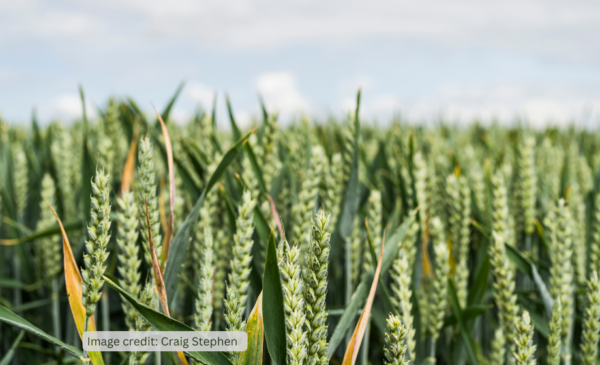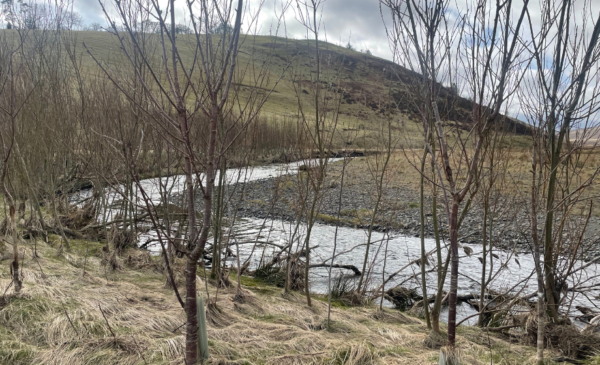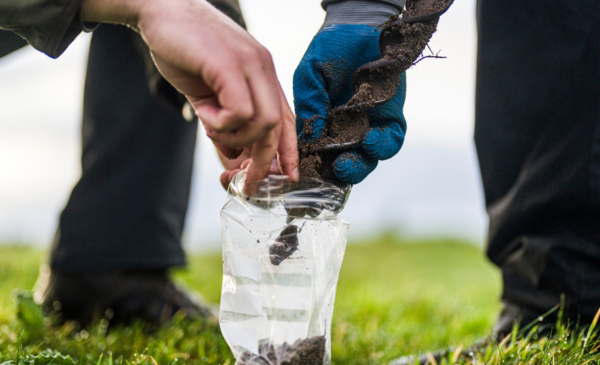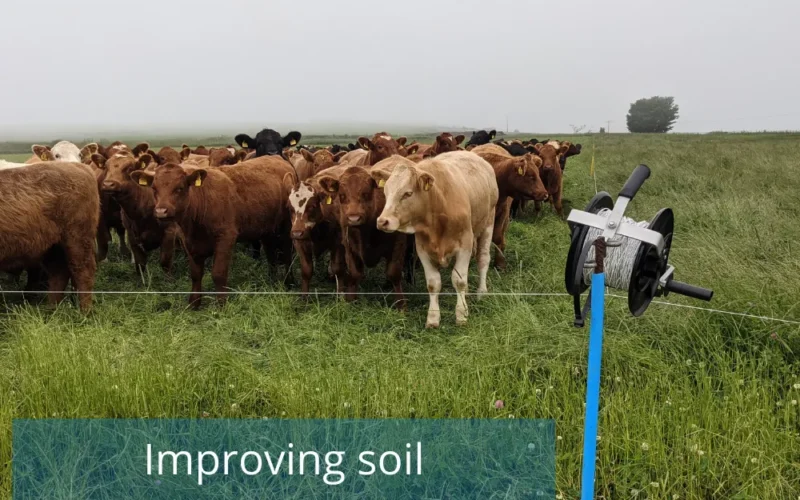Key messages
- Intensive arable/vegetable production increases the risk of soils becoming depleted in organic matter. Soils on this farm had been depleted in organic matter and suffered from poor water infiltration which restricted the number of grazing days. Increased soil organic matter reduces the susceptibility of soils to compaction, erosion and poor water infiltration but it takes time to replenish organic matter levels.
- Experience from this farm has shown that switching from a conventional arable to organic livestock system, and using regenerative agricultural practices such as mob grazing can help increase soil health and the number of grazing days.
- Experience from this farm has shown that using diverse herbal leys and increasing the rest period (30 days to 90 days depending on conditions) maximises grass height and rooting depth, improving soil structure and water infiltration.
- Less intensive sward management and using grass/clover swards to replace chemical fertiliser with biologically fixed nitrogen has been beneficial to the farm business.
- Permanent features such as livestock feeders and water troughs are hotspots for soil erosion and nutrient losses to water courses through runoff or drainage. This can be avoided through sowing damaged soil surfaces with grass seed and using mob grazing practices with moveable troughs, such as those used on this farm.
- Experiences on this farm have shown that mob grazing practices can provide benefits to livestock health as well as soil health. Once the infrastructure (e.g. electric fencing and water supply) is in place for splitting fields and moving livestock, mob grazing is straightforward.
19
Related resources

Integrated Pest Management and the Voluntary Initiative
How can you improve pesticide management on farm?
How can you improve pesticide management on farm? In this podcast we chat with Neal…

Natural Flood Management Podcast
Riverbank Stabilisation – what do you need to do?
Riverbank stabilisation features can been a key solution to protecting riverbanks and safeguarding key agricultural land.
In this podcast episode we chat with Helen Reid, Senior Hydromorphologist from SEPA and Alex…

Organic matter – why is it important?
Organic matter, why is it important, what benefits does it bring to the soil? In this podcast we discuss organic matter, from what it is, to the benefits that can be gained from improving the quantity in your soil.
Organic matter, why is it important, what benefits does it bring to the soil? In…

